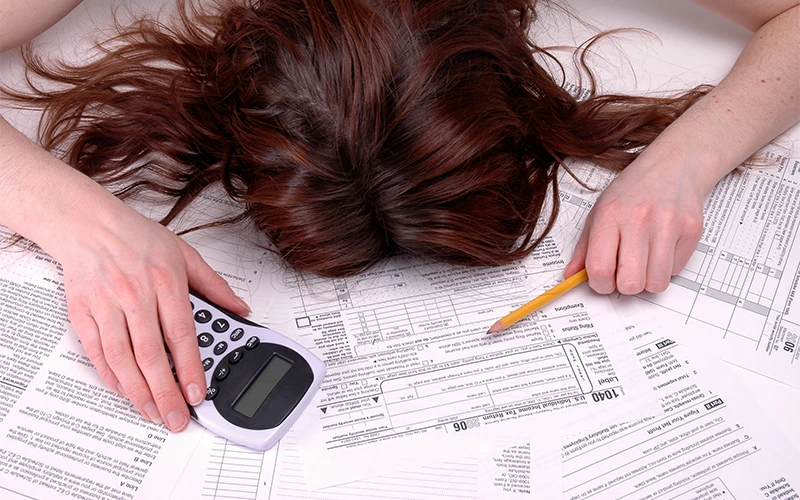From Axios —
There’s a tax headache ahead next year for millions of Americans who use apps like Venmo or Paypal regularly, part of a little-noticed change passed in March as part of the American Rescue Plan.
Why it matters: Anyone who was paid more than $600, for selling goods or services, using one of these third-party apps should get a 1099-K tax form detailing that money. It may get confusing.
- Experts worry the IRS doesn’t have the resources to deal with the onslaught of 1099-K forms, which will be sent to the agency, too.
- Another worry is that many folks will get a form and not owe taxes, but still need to go through a rigamarole to cope.
What’s happening: Before the law was changed, 1099-Ks went out only to those who took in more than $20,000 through more than 200 transactions.
- Think, small biz types who use Square, maybe a taco truck owner, professional home cleaner, or someone selling baby booties at weekend markets.
- Now, more micro-business owners or side-gig hustlers — a babysitter, an Etsy seller, a house cleaner who maybe weren’t reporting that income — will get a form.
- A lot of these folks won’t wind up owing money — their income might not be high enough to pay tax or they’re selling used goods at a loss and don’t owe money.
The intrigue: The IRS said these forms shouldn’t go out to those who just received money for personal transactions (like splitting the dinner bill). But experts say it’s likely there are going to be forms sent out in error.
- Companies “may not have the information to know if they’re dealing with a business transaction or personal transaction,” said Mark Luscombe, principal federal tax analyst at Wolters Kluwer Tax & Accounting.
- If that happens, the first step is to call the company that sent you the form to fix the problem. If the company can’t do that, you’ll likely need to explain the numbers to the IRS with an extra note on the 1040, Luscombe said.
The big picture: This is part of the IRS’ efforts to close the “tax gap,” money owed to the agency that goes unpaid.
Yes, but: “There’s a growing feeling that both the Internal Revenue Service and the private sector need more time to prepare,” writes Accounting Today.
- “It’s really confusing. It’s really bad policy,” Etsy CEO Josh Silverman told Axios in an interview.
- “This impacts hobbyists, moms and anyone using technology to receive payments, all who now have to run their life as a business,” Carol Roth, a small business advocate, told Axios in an email. “It shifts additional record keeping work and other time burdens on to the average American.”
Etsy is a member of a lobbying group called the “Coalition for 1099-K Fairness,” racing to get this law changed before the end of the year. Other members funding the group include eBay, Airbnb, PayPal and Poshmark.
- The coalition estimates that as many as 40 million Americans will get one of these forms in January ahead of the filing deadline for 2022 taxes.
What to watch: Congress. There seems to be agreement on both sides of the aisle that this provision should be changed. The coalition says it’ll be easier to do that now, rather than after the forms go out.
- There’s a draft bill sponsored by Sen. Bill Hagerty (R-Tenn.) called “Stop the Nosy Obsession with Online Payments Act of 2022” (SNOOP Act), partially driven by privacy concerns. It would set the threshold back to $20,000.
- Another draft bill supported by some Democrats, called “Cut Red Tape for Online Sales,” would raise the threshold to $5,000.
The bottom line: Though the 1099-K change will undoubtedly be a pain for people, the effect on American pocketbooks will likely be minimal — nothing changed in the tax code itself..
Read full Axios story at this link.
Need tax help? Contact Pinnacle CPA Advisory Group
If you receive surprise tax forms, or need any kind of accounting or tax help, contact the experts at Pinnacle CPA Advisory Group. Reach us by calling our office at (614) 942-1990, sending email to info@cpaagi.com, or just fill out the Contact form on this website at cpaagi.com/contact.

